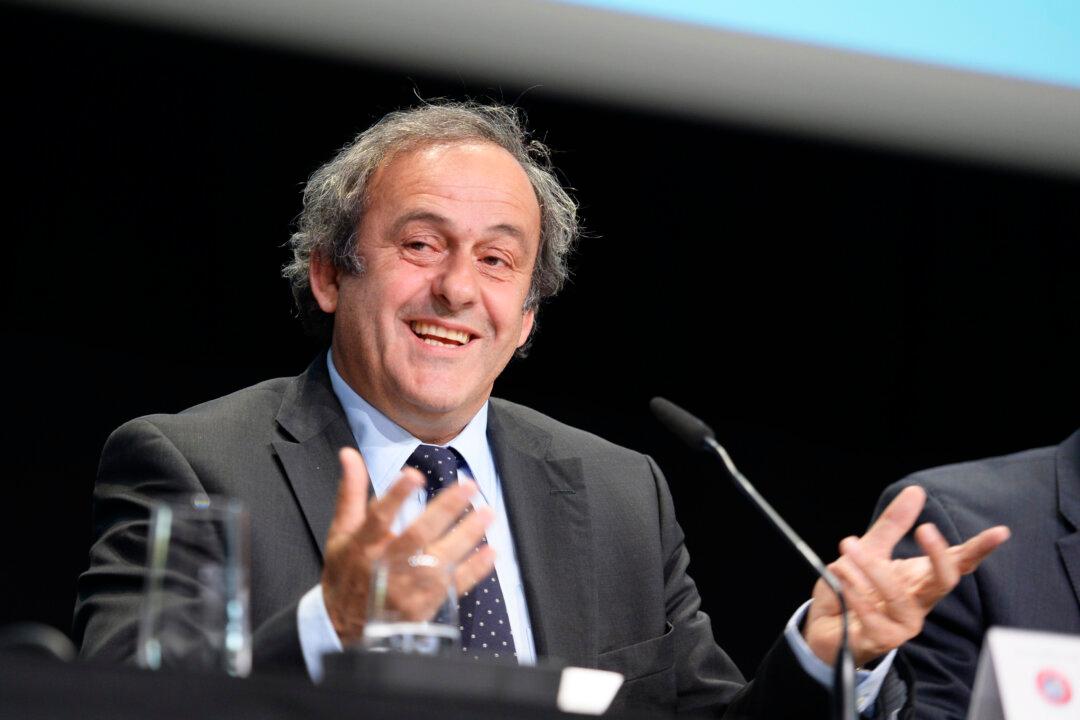GENEVA—Michel Platini has launched his campaign to succeed Sepp Blatter as FIFA president, aiming to give the scandal-hit governing body “the dignity and the position it deserves.”
Platini, the UEFA president and a FIFA vice president, wrote to member federations in Europe on Wednesday saying he will stand in the election and is counting on their support.
The FIFA election is on Feb. 26 and would-be candidates must apply by Oct. 26.





